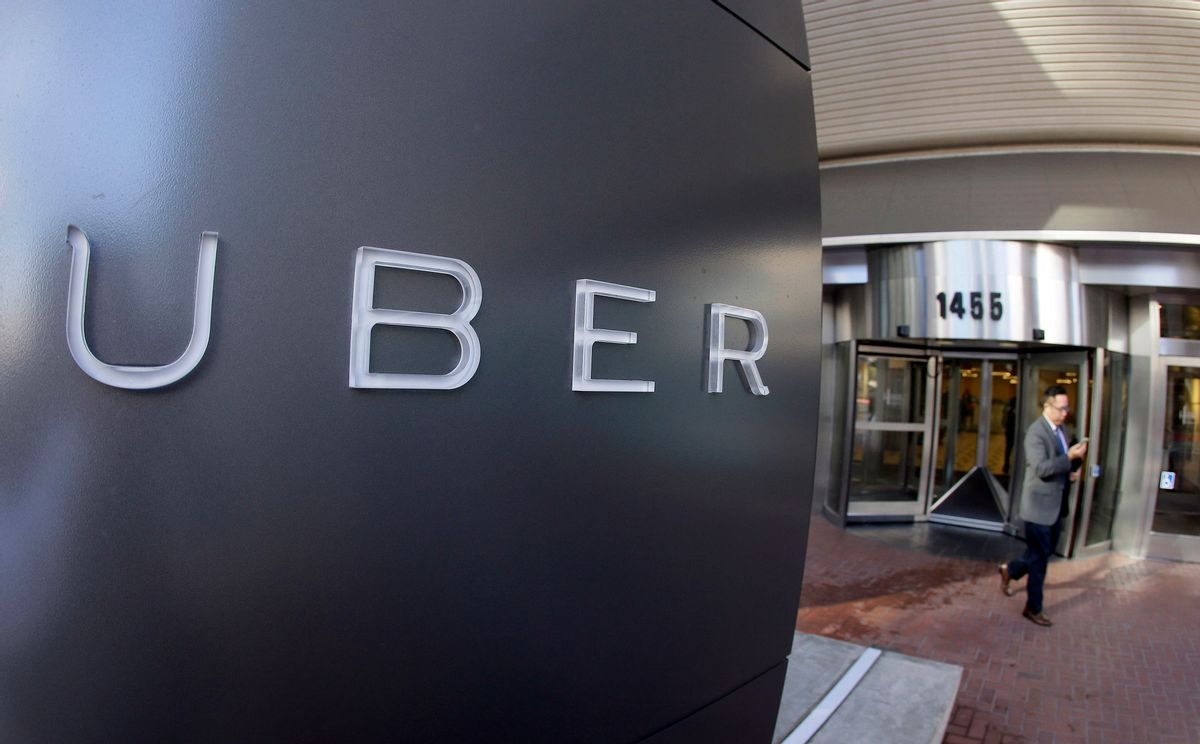NEW YORK (AP) — More companies don't want you, or any other investor, to buy their stock.
Instead of listing their shares on a stock exchange, businesses are going private or never going public in the first place. Security company ADT, for example, pulled its shares off the market this spring after going private in a nearly $7 billion buyout. Uber, meanwhile, makes it simple for customers to hail a car, but investors can't easily buy a piece of the privately held company, which is valued at more than $60 billion.
The number of publicly traded U.S. stocks has been on the decline since the dot-com bust, and there are now only about 3,300 listed in the Center for Research in Security Prices' database. That's down by roughly half since the late 90s, and it's the lowest number since 1984, when the U.S. population was about three-quarters the size it is today.
For companies, going or staying private means they can more easily ignore the whims of Wall Street analysts and short-term traders who focus on this quarter's numbers rather than long-term growth. Companies may also be feeling less inclined to sell their stock in an initial public offering when they can instead raise cash cheaply by borrowing at close to record-low interest rates.
But while the trend may be good for CEOs, it's also limiting the menu of choices available to investors and to the mutual-fund managers they hire.
"The U.S. equity world is becoming smaller and smaller, and this could be one of many reasons why active managers are lagging behind their indexes," Steven DeSanctis, an equity strategist at Jefferies, wrote in a recent report.
With fewer companies to choose from, it's becoming more difficult for fund managers to differentiate their portfolios from others and to justify the fees they charge. Not only are fewer companies publicly traded, but many of the companies that still list on exchanges have fewer shares available to trade than before.
With billions of dollars in the bank and the cost of borrowing close to record lows, companies have been on a buyback binge in recent years. They're repurchasing their shares to eliminate them, which gives their per-share earnings a boost at a time when the global economy is still growing only slowly.
Apple, for example, has 17 percent fewer shares available in the market than five years ago. It and the other businesses across the Standard & Poor's 500 index spent a total of $572 billion last year on share repurchases.
Fund managers have been complaining for years that big stimulus programs by central banks around the world have caused stocks to increasingly move together in herds, both up and down, which dilutes the rewards for picking stocks. The more limited menu of options means fund managers are increasingly chasing after the same opportunities. So perhaps it shouldn't be a surprise that few are able to distinguish themselves. There are more than 2,000 mutual funds focusing on U.S. stocks alone, according to Morningstar.
Only 15 percent of all large-cap stock funds were able to tie or beat the S&P 500 over the 10 years through the end of June, according to a recent tally by S&P Dow Jones Indices. The numbers are even worse for managers of small-cap and mid-cap funds. Only 9 percent of managers in either category were able to beat their respective indexes, the S&P SmallCap 600 and S&P MidCap 400, over that decade.
The trend has been different in other countries, particularly those whose economies have been opening up in recent years. The number of publicly traded Indian companies has more than quadrupled from 1,295 in 1984, for example. In Canada, the number has roughly tripled, while in Germany it's up slightly.
Nine U.S. companies are set to go public this week, headlined by the planned debut of Valvoline on Friday. That would make it the busiest week of the year for the U.S. IPO market.
But that's an anomaly in what has been a particularly slow year for IPOs in this country, which has accelerated the trend of the shrinking stock market. Through August, only 59 IPO deals priced, according to industry watcher Renaissance Capital. That was down by more than half from the pace of 2015 and the weakest eight-month start to a year since 2009, when the economy was emerging from the Great Recession.



Shares